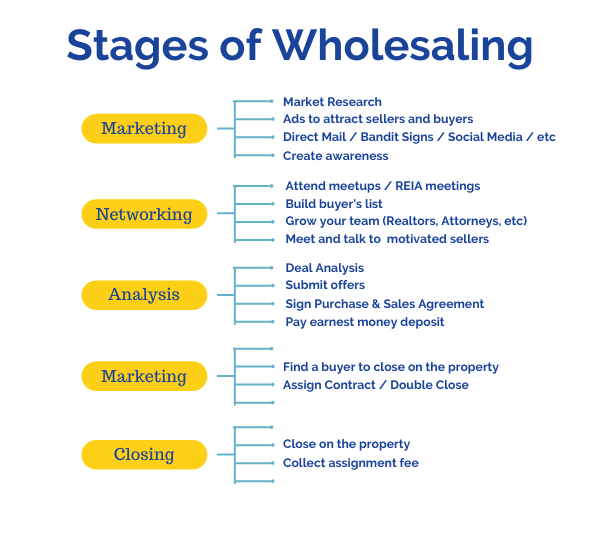
Introduction
Real estate investing can be a lucrative way to diversify an investment portfolio. Real estate investors buy, lease, and eventually sell properties to make a profit . This guide explores what it means to be a real estate investor, outlining different types of real estate investments, investment strategies , and potential challenges.
Types of Real Estate Investments
1. Investing in Residential Properties
- Single-Family Homes: Homes intended for individual families. These are preferred among novice investors due to their manageable investment size and straightforward maintenance.
- Multi-Family Properties: Properties that house multiple families, including duplexes and apartments. They generate more rent but demand greater management effort.
- Vacation Rentals: Properties rented out to short-term tenants, often through platforms like Airbnb or Vrbo. These can bring in substantial earnings but may have more frequent vacancies and require active management .
2. Investing in Commercial Properties
- Office Buildings: Spaces leased to businesses for office use. They often have long-term leases , offering consistent revenue .
- Retail Properties: Properties rented by retail businesses, including shops and malls. Success is dependent on tenant profitability.
- Industrial Properties: Industrial buildings such as factories and storage units. real estate wholesale These have protracted agreements and require little oversight.
3. Industrial Real Estate
- Warehouses: Storage facilities for merchandise and materials. Demand is driven by e-commerce growth .
- Manufacturing Facilities: Buildings used for production and assembly of goods. These need expert understanding to invest .
- Distribution Centers: Central points for shipping and logistics. High demand in supply chain management .
4. Investing in Land
- Undeveloped Land: Vacant plots awaiting development. It offers potential for development but can be uncertain.
- Developed Land: Land that has been prepared for construction, such as subdivided plots. Requires significant investment and development expertise .
- Agricultural Land: Farmland used for growing crops or raising livestock. Offers consistent profitability but requires understanding of agricultural trends.
Strategies for Real Estate Investing
1. Long-Term Holding Strategy
- Overview: Acquire and lease properties long-term to enjoy rental income and appreciation.
- Pros: Regular income, tax incentives, and increased property value over time.
- Cons: Needs active management, locks in capital, subject to market fluctuations.
2. Fix and Flip
- Overview: Buy properties at a discount, renovate them, and sell them at a higher price.
- Pros: High profit potential in a short period, property improvement.
- Cons: Risky, needs building knowledge, sensitive to market changes.
3. Property Wholesaling
- Overview: Locate undervalued homes, contract them, and transfer the contract for a fee.
- Pros: Requires little capital, fast deals, no property upkeep.
- Cons: Requires finding motivated sellers, building a buyer’s list, less profit per deal.
4. REITs (Real Estate Investment Trusts)
- Overview: Invest in a company that owns and operates income-producing real estate. REITs are traded on stock exchanges.
- Pros: Liquid investment, diversified portfolio, passive earnings, managed professionally.
- Cons: Market volatility, less control, fees and expenses.
5. Real Estate Crowdfunding
- Overview: Invest collectively in real estate projects via crowdfunding sites.
- Pros: Low entry point, diversification, access to large projects.
- Cons: Lack of direct control, associated fees, inherent risks.
Steps to Becoming a Real Estate Investor
Education and Research:
Learn the Basics: Gain knowledge about real estate trends, funding methods, property upkeep, and investment approaches.
Networking: Engage with investment communities, participate in seminars, and network with seasoned investors.
Set Investment Goals:
Define Objectives: Set clear goals for your investments, whether for income, appreciation, or diversification.
Set Investment Goals
- Define Objectives: Clarify your investment aims, focusing on income, growth, or diversification.
- Risk Tolerance: Evaluate your risk tolerance to select suitable investment strategies.
Develop a Business Plan
- Market Analysis: Analyze markets, property categories, and expected returns.
- Financing Strategy: Outline your funding strategy, considering mortgages, loans, and savings.
Build a Team
- Key Professionals: Assemble a team with agents, lawyers, accountants, managers, and contractors.
- Networking: Keep expanding your professional network for support.
Start Small
- Initial Investment: Begin with smaller properties or simpler projects to gain experience.
- Learn and Adapt: Use early investments as learning experiences and refine your strategies.
Scale Up
- Growth: Expand your investments as your experience and confidence grow.
- Diversification: Broaden your investment portfolio with varied properties and areas.
Challenges and Risks in Real Estate Investing | Potential Challenges and Risks
1. Market Volatility
- Economic Factors: Markets are subject to changes in the economy, interest rates, and policies.
- Mitigation: Monitor market trends and modify strategies accordingly.
2. Property Management
- Tenant Issues: Tenant problems, vacancies, and collecting rent can be difficult.
- Solutions: Hire a property management company or develop strong management skills.
3. Financing and Cash Flow
- Funding Challenges: Getting funding and managing cash flow can be challenging.
- Strategies: Create a robust financing strategy and keep a reserve for emergencies.
4. Legal and Regulatory Issues
- Compliance: Ensure your investments comply with local, state, and federal laws.
- Advice: Work with legal experts to understand and follow regulations.
Conclusion
Real estate investing can be highly rewarding to grow wealth and meet financial objectives. By exploring different investment options, creating a solid plan , and being prepared for challenges , you can navigate the world of real estate investing successfully . Whether you are a novice or veteran investor, staying informed and adaptable are key to wholesaling property achieving long-term success .